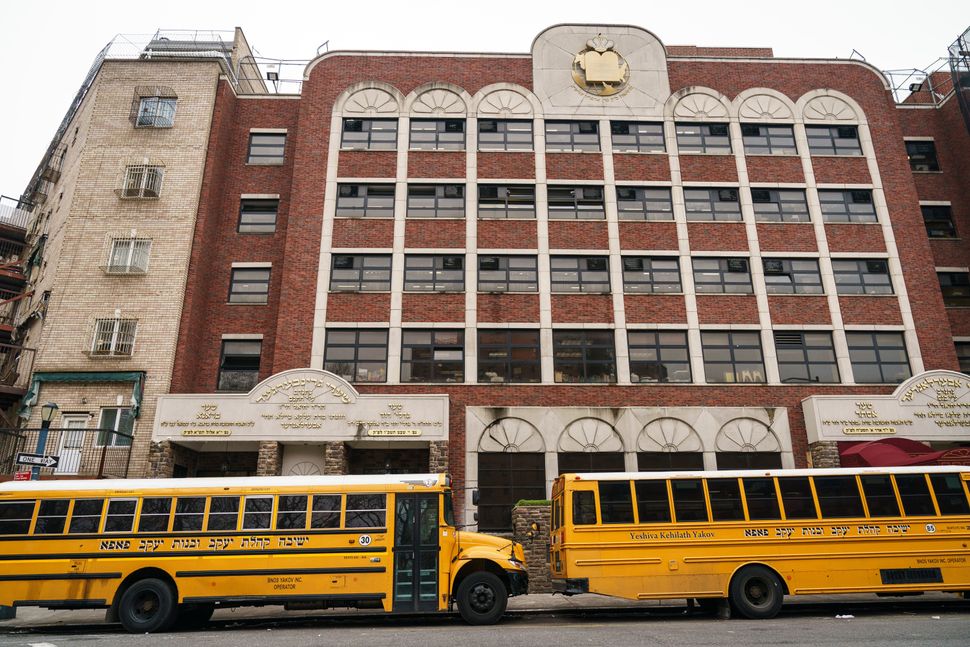After a long delay, New York State revives debate over secular education requirements in yeshivas

Image by Getty Images
New York State’s Education Department has restarted the process of examining what constitutes “substantially equivalent” education in New York private schools.
It’s a question that’s been at the center of a battle between Orthodox institutions and NGOs in New York City for years, but was stalled due to the pandemic outbreak.
On the one side are groups like Young Advocates for Fair Education. They are advocating for greater government oversight of Orthodox day schools and yeshivas that they claim do not provide an equivalent education to public schools, and that sometimes offer little to no secular education to hundreds of thousands of Hasidic and other Orthodox students.
On the other, the Orthodox institutions, through their own group, Parents for Education and Religious Liberty in Schools (PEARLS) have strongly lobbied the state and city governments to step back and allow their schools to operate with little oversight.
In the coming months, NYSED will hold five meetings with “stakeholders,” by which they mean those professionally involved with schools, and one with parents, students and alumni, both discussing the issue of secular education.
However, Naftuli Moster, the leader of YAFFED, says his group is being kept out of the Education Department’s meetings on substantial equivalency regulations.
“NYSED has too narrowly defined who gets to be a stakeholder in the regional meetings,” Moster said in a statement. “Taxpayers are stakeholders, education activists are stakeholders, human rights lawyers and nonprofit organizations are stakeholders. In order to get a true representation of those affected by the regulations, all these parties must be granted equal access to attend and participate in all regional meetings.”
A message from our Publisher & CEO Rachel Fishman Feddersen

I hope you appreciated this article. Before you go, I’d like to ask you to please support the Forward’s award-winning, nonprofit journalism so that we can be prepared for whatever news 2025 brings.
At a time when other newsrooms are closing or cutting back, the Forward has removed its paywall and invested additional resources to report on the ground from Israel and around the U.S. on the impact of the war, rising antisemitism and polarized discourse.
Readers like you make it all possible. Support our work by becoming a Forward Member and connect with our journalism and your community.
— Rachel Fishman Feddersen, Publisher and CEO





















